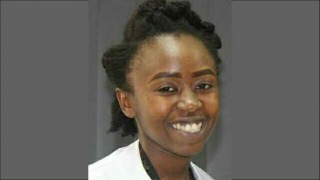Across Malawi, malaria remains a major public health concern
Across Malawi, malaria remains a major public health concern. Despite considerable gains in malaria control efforts and 67.5% of children under the age of 5 sleeping under insecticide treated nets, the treatable disease remains a deadly threat to life and a leading cause of child mortality.
That’s why for Malawian researchers, tackling the oldest and most deadly disease remains top of the priority list. Both Dr Donnie Mategula, currently based in London for his training and Dr Alinane Munenyembe, based in Blantyre, Malawi are concentrating on malaria research, tackling the effects of the potentially life-threatening disease in pregnancy and early childhood as well as researching malaria immunology in their respective careers.
Malaria research isn’t just a job for Donnie and Alinane who are all too familiar with the realities of the worlds oldest disease. Throughout his childhood, Donnie seemed to be more vulnerable to the parasite than his siblings and was admitted to hospital several times for treatment from ‘severe malaria’. Discussing how malaria affected his childhood, Donnie spoke openly about how he once suffered from a serious seizure and had a lengthly stay in hospital all because of an infected mosquito.

Whilst this seems like a distant threat to those of us here in the UK, Public Health England’s lastest report highlights that imported malaria cases in the UK are on the rise with 1792 imported cases of malaria being reported in the UK in 2017 (that’s a 10% increase on the 2016 reports), meaning that nobody is safe from the deadly mosquitoes.
Similarly, Alinane and her sister regularly missed days of school and both were admitted to hospital for treatment on numerous occasions, although luckily Alinane admits it didn’t have too much of an impact on either her sisters or her own education. Whilst both are free from any long-term side effects, it’s not uncommon for malaria to continue to affect some of your most vital organs, including your kidneys for the rest of your life. Aside from the dangerous effects it can have on your health, malaria can also have a crippling effect on families’ incomes. Both Donnie and Alinane talked about how their parents had to take large amounts of time off of work losing out on a vital family income whilst having to pay for expensive malaria treatment.
When ever my sister had malaria and had to go to hospital, it would meant that my mum and dad wouldn’t be able to go to work
Despite both Donnie and Alinane falling ill with malaria in childhood and tragically losing close friends and family, both are keen to highlight the incredible progress Malawi has made in recent years. Despite this, Donnie and Alinane know that it may take many years to eliminate malaria and so along with a community of young Malawian researchers have dedicated their work to different aspects of the disease in Malawi.
This, combined with Alinane noting an upward spike in the number of adults being admitted to hospital with complicated malaria, left both doctors inspired to pursue a career in medical epidemiology and immunology, influencing global policies and practices and contributing to an overall reduction of malaria cases. Joining the Malaria research group at the Malawi- Liverpool Wellcome Trust Clinic both Donnie and Alinane are enrolled on a malaria training and career development scheme, aimed at generating future research leaders.
Currently based in London, Donnie is completing his Masters in Epidemiology at the London School of Hygiene and Tropical Medicine, which will then be followed by an 18-month research project focusing on malaria exposure during pregnancy and the effects of improved malaria control on infant outcomes amongst other factors. Currently an under-researched area, Donnie hopes to understand more about the opportunities for optimising malaria control both during pregnancy as well as infancy, assisting in the development of immune responses and malaria vaccines.

Unlike Donnie, Alinane is currently in Malawi, but will be enrolling at Glasgow University in September to study Immunology. Soon after starting her medical career, Alinane treated a man who had been admitted to hospital with severe malaria, unfortunately it had taken him seven hours to arrive, by which time the there was nothing Alinane or her team could do. Statistically, adults are less likely to suffer from severe malaria as many build up a resistance to the disease throughout childhood. Yet, this trend was not as clear as it had been previously and Alinane and her team were noticing a marked increase in the number of severe, adult malaria cases being admitted to the hospital. Whilst both doctors see the benefit of treating patients on a 1-2-1 basis, they also agree that significant progress can only be achieved through research. Alinane’s work has been focused on understanding the relationships between severe malaria and other infectious diseases including HIV.
To win the fight against malaria and eliminate the disease more researchers are needed across different involved areas, including experts in mosquito behaviour, human behaviour and immune responses and drug treatments
Despite having different interests both Donnie and Alinane agree that malaria will only be eradicated through a combined effort of research, political and governmental changes and a wider societal understanding of the dangers of malaria.
Whilst the rates of malaria vary within Malawi, particularly those living in the South and Central parts of the country continue to be at a heightened risk and it’s here that Donnie and Alinane both believe community education needs to be improved. Whilst it is helpful educating children and women, Malawi remains a largely patriarchal society and so it is vital that men are also included within community projects, understanding the importance of the proper use of bed nets, protecting themselves and their families from the threat of malaria.
Through radio adverts and improved education within schools, Alinane is hopeful that attitudes will begin to change. This combined with the government distribution of bednets means that despite the social and political barriers, Donnie and Alinane are confident that Malawi will be declared a malaria-free country within their generation.
